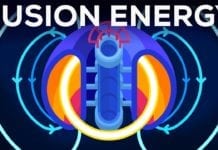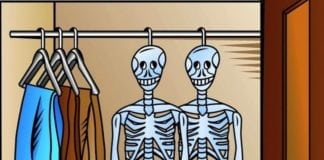
Have you ever noticed how low intellect people, particularly those associated with universities and politics, consider their own competence to be far higher than it is, whilst intelligent and capable people generally rate their own abilities much lower?
You are not mistaken. This is a well-researched cognitive bias known as the Dunning-Kruger Effect.
The Dunning–Kruger effect is a cognitive bias in which an unskilled, poorly educated person makes bad decisions and arrives at mistaken conclusions, but their incompetence denies them the metacognitive ability to recognise their mistakes.
The unskilled therefore suffer from a sort of ‘superiority complex’ and believe their own ability to be way above average. Far greater than it actually is.
On the other hand the highly skilled and well-educated tend to underrate their abilities and suffer from illusory inferiority.
This leads to the perverse situation in which less competent people rate their own ability much higher than more competent people do.
It also explains why actual competence may weaken self-confidence: because competent individuals wrongly assume that everybody else has an equivalent mental ability.
In other words stupid people are too stupid to realise they are stupid. And clever people wrongly assume that everybody sees and understands in the same way they themselves see and understand things.
Or, as Bertrand Russell put it, ‘One of the painful things about our time is that those who feel certainty are stupid, and those with any imagination and understanding are filled with doubt and indecision‘
The Dunning-Kruger research concluded that the competent tend to overestimate other people’s skill levels.
But the incompetent make the mistake of overestimating their OWN skill level and they lack the basic intelligence to realize their error. In other words, they were too incompetent to recognize their own incompetence.
The Dunning–Kruger effect was submitted by Justin Kruger and David Dunning. Similar notions have been expressed, albeit less scientifically, for many years.
Dunning and Kruger themselves quoted Charles Darwin ‘Ignorance more frequently begets confidence than does knowledge.’
The Dunning-Kruger conclusions do reveal some exceptions, notably within the education system. Studies cited reveal that a whopping 94% of all college professors overestimate their own abilities and rate their work to be ‘above average,’ relative to their peers.
College and university students who are achieving above average grades also rate their own abilities far higher than they actually are.
Both groups exercise influence over others who are less capable and both groups regard themselves to be on the Left of politics and Liberal thinkers.
The original paper was titled, ‘Unskilled and Unaware of It,’ for which the authors won an Ig Nobel Prize in 2000. – Albert Jack






































